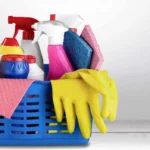With more people becoming aware of the environmental destruction due to the extraction of natural resources and the land, water, and air pollution caused by improper waste handling and disposal, recycling has become more popular thanks to deposit return schemes.
Many households, schools, local communities, businesses, and organizations are now more concerned about helping keep the environment safe. Recycling is one of the ways to decrease the amount of waste materials filling up landfills and a wide range of trash ending in land and water systems. As a result, many recycling facilities were established to process recyclable materials, providing incentives like turning waste into cash. Langley Recycling, for one, accepts scrap metals for money, helping residents in Kansas City eliminate clutter in their homes and buildings.
Recycling does not mean putting cans, bottles, plastics, scrap metals, and old appliances in trash bins. Instead, there is a systematic way to do it. We can help you make your recycling efforts more effective with these tips.
Reduce, reuse, and recycle
The basic rule in recycling is to reduce, reuse, and recycle. When you recycle, you do not throw away items that you can recycle. You can reduce the number of things that you consume. Shift to well-made and well-designed products, so you do not have to buy the same items frequently. Think of constructive ways to reuse some products. Instead of replacing broken items, see if you or someone else can fix them. You may find it easier to buy bottled juices and water, for example, and place the empty containers in the right bin. But consider using a water filter, which you can use for a long time. Buying reusable containers will reduce your need for disposable plastic bottles, and purchasing fresh fruits or powdered juices will reduce the number of containers you have to throw away.
Know the items you can and cannot recycle
Your local community may have additional recycling rules about the items they will accept for curbside recycling. In Kansas City, for example, the local authorities require food containers to be washed and cleaned and placed in blue or black recycling bins. In addition, they accept paper and paper products, plastic bottles (codes 1 and 2), plastic containers (codes 3 to 7), metal cans, clean aluminum foil and pans, clean milk/vegetable/juice cartons, and clean pizza boxes (without grease).
Donate reusable materials
There are many creative ways to use some of the disposable materials around the house. Moreover, schools, local community organizations, and other institutions welcome items they can still use. Organizers of halfway homes and other charitable institutions accept donations of things that are still usable and functional. Elementary schools will be delighted to receive old newspapers and magazines, toilet paper and paper towel tubes, scrap wire, rubber bands, yarn, plastic bottles, plastic sheets, and other items. School children can use them for their art projects. A skilled artisan or artist can turn old doors, window frames, old grills, and scrap wood and metals into new, functional, or decorative objects.
These tips are the most essential, but you can still do many more things to reuse or recycle materials around your home. You can recycle clothes, water, electronics, and even food scraps. Find ways to recycle and make your home clutter-free.



